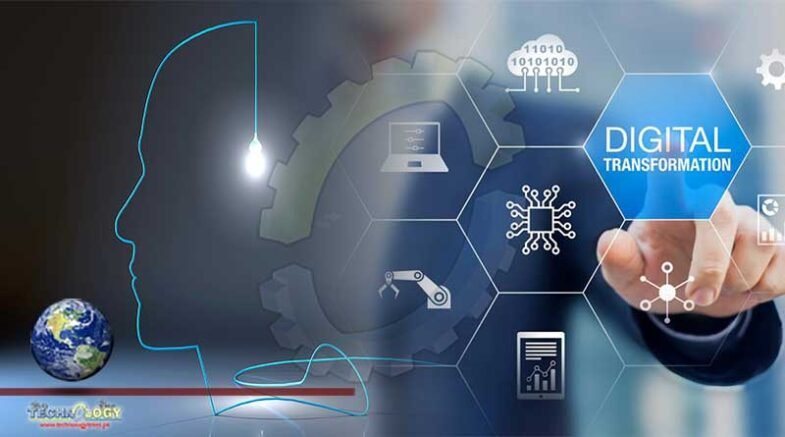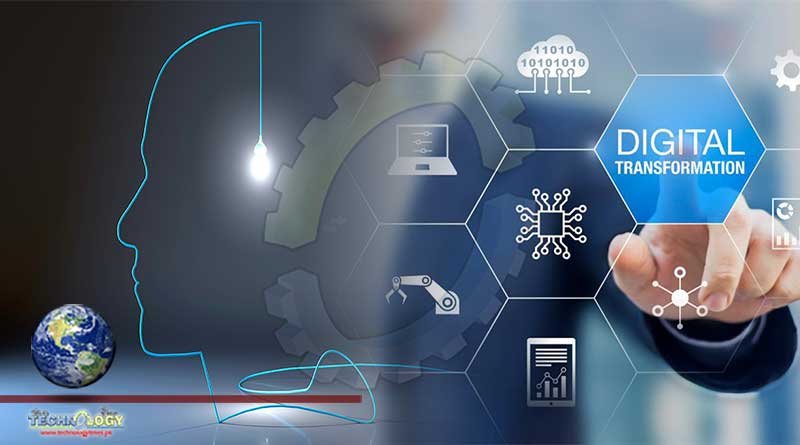Digital Transformation is happening everywhere right now. Indeed one survey found that organisations are not just planning transformation

Colin D Ellis (main photo) is a culture change expert, author and international speaker. His latest book is Culture Hacks: 26 Ideas to Transform the Way You Work is out now. In this guest post, Ellis argues a change in mindset is the starting point to any digital transformation…
There are many lessons to be taken from the events of 2020 that continue into this year, not least the fact that the mindsets of senior leaders that had previously blocked the shift to greater flexibility and trust in technology were finally changed, albeit through necessity rather than choice.
IT departments swung into action, tools were ‘rolled out’ and adoption of video conferencing and collaboration technology was not only embraced but also seen as a valuable addition to the way that things get done, both now and in the future.
However, those changes didn’t necessarily lead to an improvement in the culture of advertising, media and marketing teams. In fact, for many the poor behaviours were simply replicated in this new remote environment and added to the mental health strain that the virus has wrought.
Back to back in-person meetings became back-to-back virtual meetings, there was no agreement of how to collaborate and a plethora of tools contributed to collaboration confusion rather than improving productivity. And therefore, the opportunity to build on these digital needs and to transform the organisation was missed.
It is still sadly overlooked that any kind of transformation requires a change of culture ahead of the implementation of digital tools. The mechanics of how to affect this shift in thinking and behaving need to become core operational competencies so that organisations and teams don’t see culture as a ‘project’ to be undertaken by change managers who are given the limited responsibilities of training people and communicating to them about the changes that are required.
It’s overlooked because it’s considered hard to do. The ‘culture change is hard’ line is now right up there with the line from Jaws ‘You’re going to need a bigger boat’. And we all know how that ended.
In order for organisations and teams to get the most from any kind of digital approach then it requires a change in mindset, habits, behaviour and a new agreement on cultural expectations of all staff.
Digital Transformation is happening everywhere right now. Indeed one survey found that organisations are not just planning transformation, they’re planning radical transformation. Yet, another survey found that 87% of respondents found that culture was the biggest barrier to this transformation. It always has been.
When I managed Y2K (check it out on Wikipedia kids!) digital transformation projects in the UK newspaper industry in the late 1990s, the biggest issue wasn’t the technology we were implementing (it worked well), it was that the people who were to use it, didn’t want to. They liked their old order books, tubes around the office transporting copy to be edited and the tables on which they could ‘bang people out’ when they retired. This cultural transformation had to be handled delicately and they needed to be involved in the definition process so they felt that sense of belonging and empowerment when the switch was flicked on January 1st 2000.
Providing the strategy for taking a ‘digital first’ approach is sound then transformation needs to start with the staff (not senior managers) defining the new cultural state and the expectations of each other within it. If the people who are expected to transform aren’t involved in this activity then prepare for a laborious and painful process hamstrung by a lack of engagement, a unwillingness to change behaviour and a retention of the old ways of doing things.
Cultural transformations are driven by humans with growth mindsets who role model the behaviours and collaboration principles required to embrace everything that is new. They will challenge existing processes, look for smarter ways to do things and accept that they may be the problem when it comes to digital adoption.
Age shouldn’t be a factor as everyone should be willing to learn and grow. Those that don’t will be left behind and the culture will eventually reject their behaviours.
Digital tools can increase connectedness, productivity and engagement across an organisation. They can improve linkages and relationships with clients and in some instances can provide a competitive advantage. But all of this is only possible when the organisation has taken the time to build a vibrant culture that is willing to adopt them in the way they were intended.
By providing the staff with the opportunity to not only create a sense of belonging but also to instil in them the need to constantly grow and look for better ways to work, the organisation will ensure that it never needs to run a digital transformation project ever again. And at this point culture change becomes easy, not hard to do.
Originally published at BANDT
